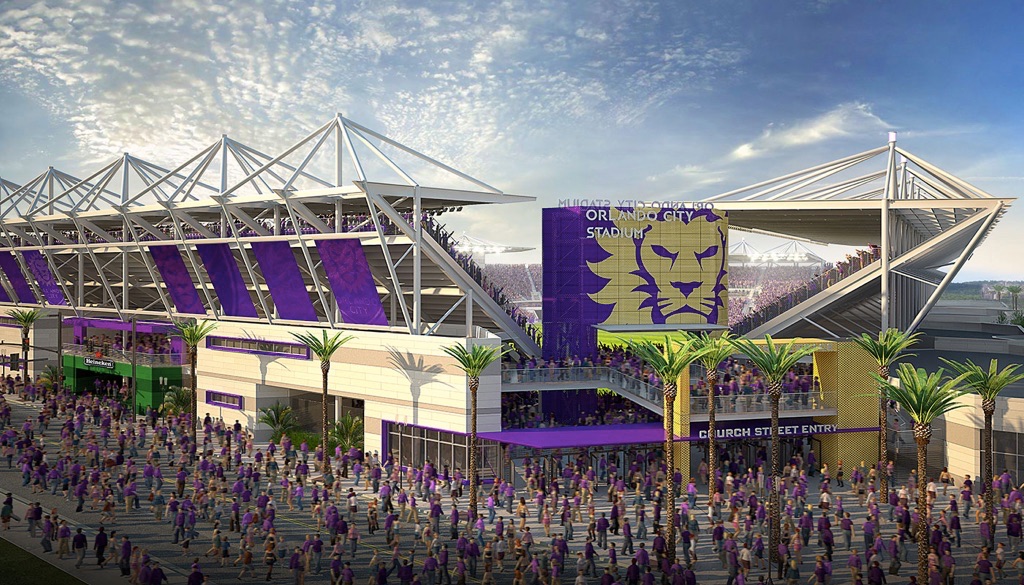Privately financing any new sports facility is a challenge these days. The owners of Orlando City SC (MLS) are taking a unique approach to the issue: soliciting foreign investors to invest in the team’s new stadium via the federal EB-5 visa program, which is essentially a program allowing a foreign citizen to “buy” U.S. citizenship by investing at least a half-million dollars into a U.S. corporation.
The federal EB-5 program been used in raising money for smaller projects in recent, like office buildings and business parks. It’s been growing in popularity in recent years, as municipalities seeking the same sort of business investments (in fact, the minimum investment is $500,000 for those putting money into economically disadvantaged areas with high unemployment), it’s an uneven method to raise money. Critics say it’s just the legal sale of a green card, allowing those with wealth to bypass the normal immigration process.
Still, it’s being used by with some success by Orlando City SC ownership to raise funds for the new $156-million downtown stadium set to open for the 2017 MLS season. The EB-5 program was intended to attract investment to economically challenged areas, and the Parramore neighborhood in Orlando would certainly seem to meet that criteria. From The New York Times:
“For us, it was a business decision,” said [majority owner Flávio Augusto] da Silva, who expects to raise about half the construction cost through the cash-for-visa program. “There was already demand from people who want to move to the U.S., have a green card and have a good opportunity to participate in the growth of the club.”…
The club said it had already attracted 30 investors, bringing in $15 million, or 10 percent of the project’s cost. Phil Rawlins, the team’s founder and president, said about $5 million in new commitments is secured each month.
“I don’t know why people haven’t taken more advantage of it, because it’s a perfect thing when you’re building a stadium,” Mr. Rawlins said of the visa program. “The program is really about economic development.”
Mark Abbott, deputy commissioner of M.L.S., said the league had reviewed the financing proposal and found it “innovative.”
Now, this approach is hardly new or revolutionary in the sports-facilities world, despite what the Times says — the Tampa Bay Rays used the same exact strategy in 2012 during an earlier run at a new ballpark, and the city of Oakland floated it even earlier in an Athletics ballpark plan — and it’s entirely legal, utilized in projects around the country.

